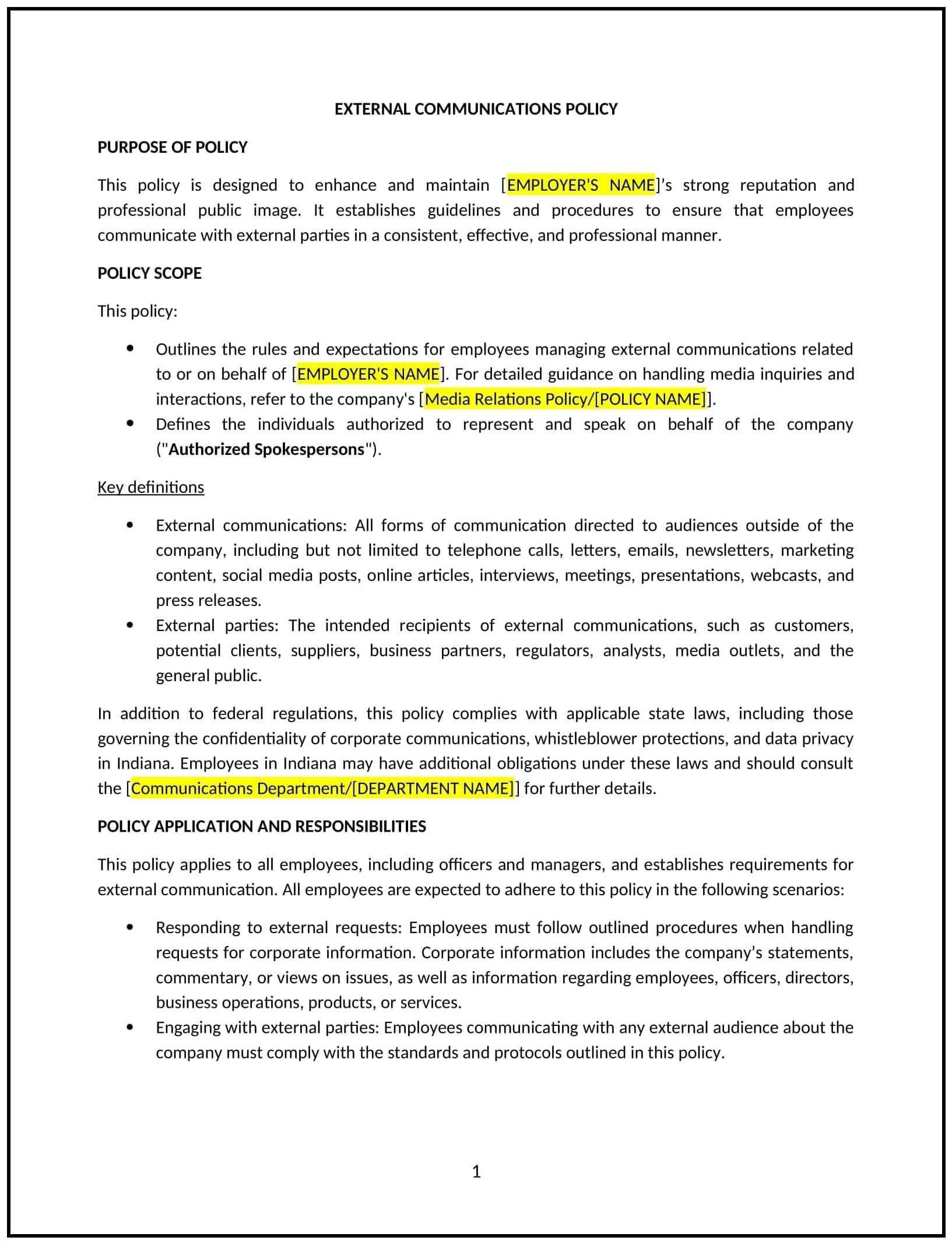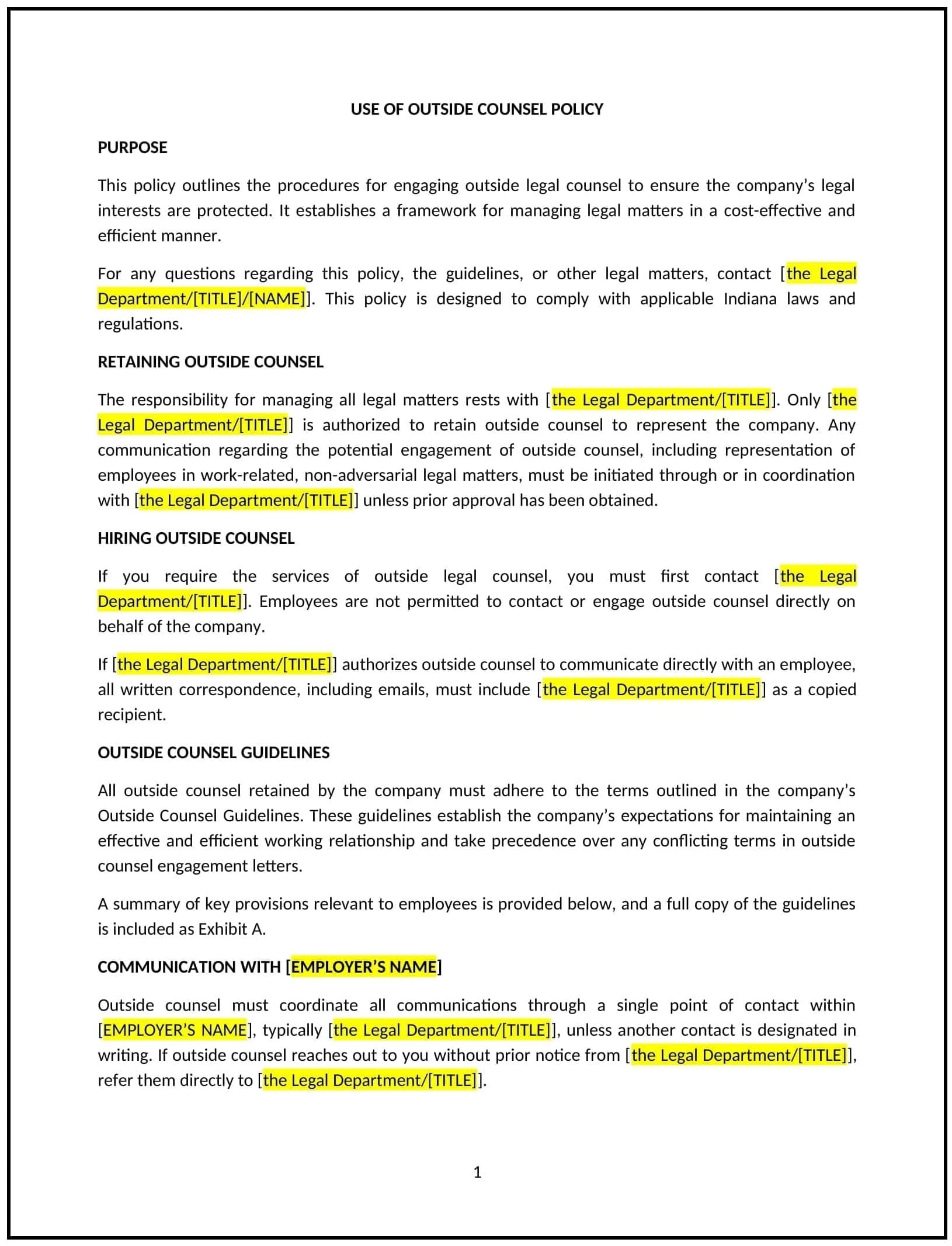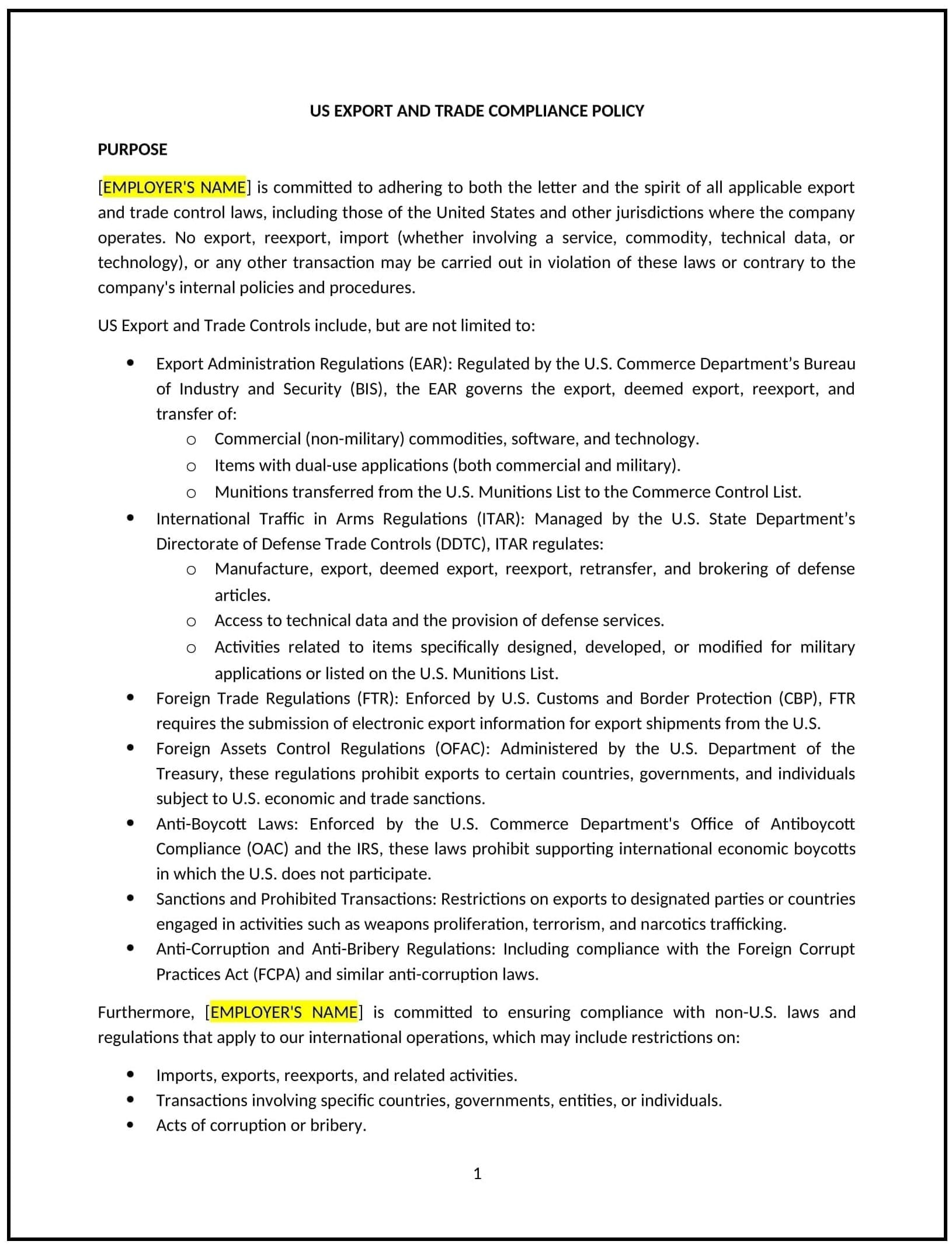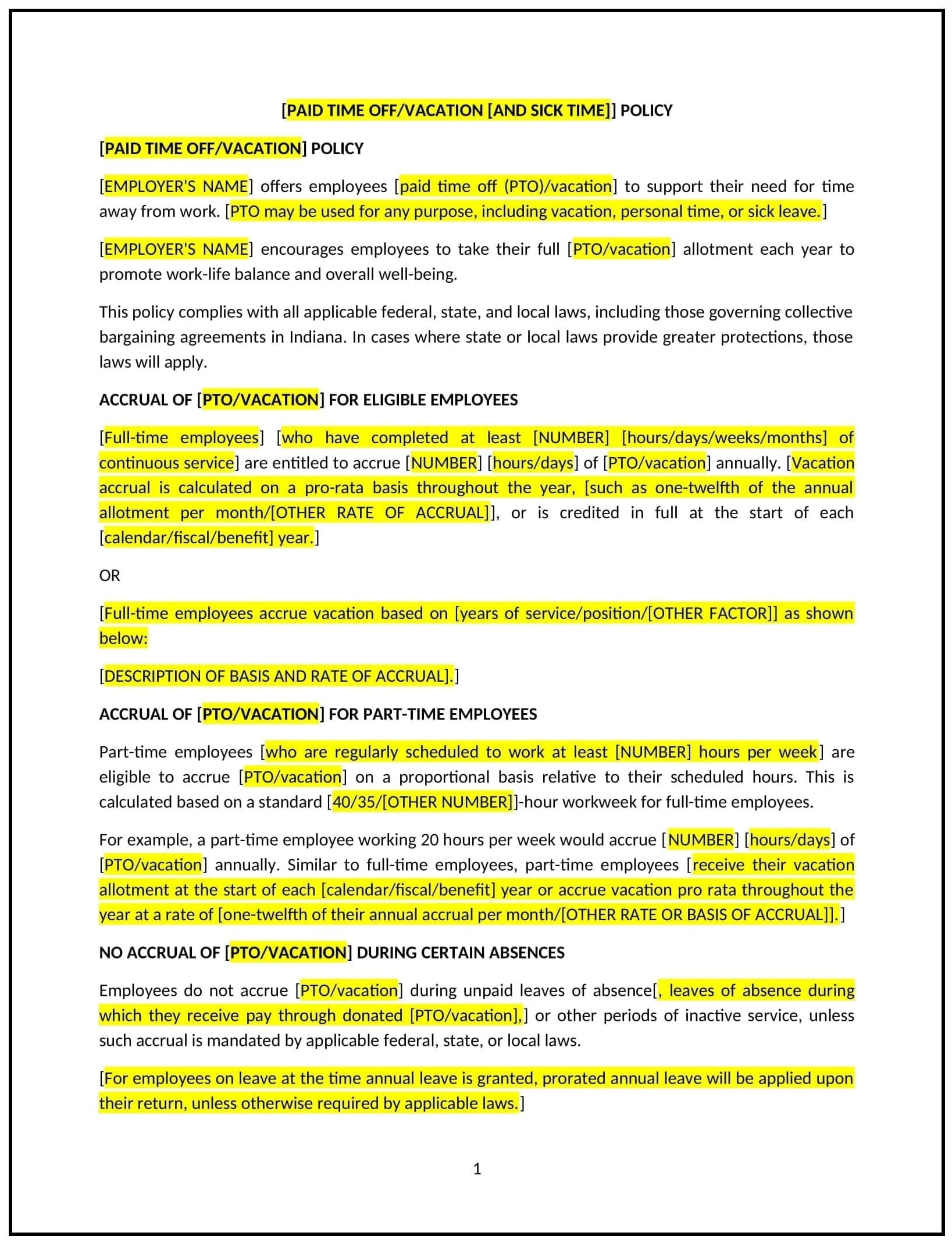External communications policy (Indiana): Free template
Got contracts to review? While you're here for policies, let Cobrief make contract review effortless—start your free review now.

Customize this template for free
External communications policy (Indiana): Free template
The external communications policy helps Indiana businesses manage their interactions with external stakeholders, including the media, customers, regulators, and the public. This policy outlines the protocols for handling communication on behalf of the business, ensuring that all statements and messages are consistent, accurate, and aligned with the company’s values and legal requirements. It covers the use of social media, press releases, marketing materials, and other forms of public communication. By using this template, businesses can maintain a unified voice, mitigate the risk of misinformation, and protect their reputation in all public-facing communications.
By implementing this policy, Indiana businesses can ensure that their external communications are professional, legally compliant, and effective in promoting their brand and engaging with their audiences.
How to use this external communications policy (Indiana)
- Define communication channels: Clearly outline the various channels through which the business communicates with external parties, such as social media, press releases, marketing campaigns, emails, and public statements. Specify which channels are authorized for communication on behalf of the business.
- Establish approval processes: Specify the process for approving external communications, including who has the authority to review and approve messages before they are released. This could involve designated spokespersons, the communications team, or upper management.
- Set guidelines for content creation: Provide guidelines on the type of content that can be shared externally, including the tone, style, and message. Ensure that all external content aligns with the company’s brand, values, and compliance standards.
- Address social media use: Set clear guidelines for how employees should handle social media in both professional and personal contexts. This includes how employees should reference the business on their own accounts and the appropriate use of official company accounts.
- Protect confidential information: Emphasize the importance of protecting confidential and proprietary information in all external communications. The policy should outline what constitutes confidential information and how it should be handled in public-facing statements.
- Promote consistency: Ensure that the messaging across all external communications is consistent. This includes aligning messaging on social media, in advertising campaigns, during public appearances, and in customer service communications.
- Define the role of spokespersons: Identify the individuals authorized to speak on behalf of the business to the media, customers, and other external stakeholders. This may include executives, public relations personnel, or designated spokespersons.
- Address crisis communication: Include a section on how the business will handle communication during a crisis or emergency. The policy should define the steps for managing public relations during these events, ensuring that the messaging is clear and coordinated.
- Ensure compliance: Ensure that all external communications comply with relevant laws, regulations, and industry standards, including advertising laws, data protection regulations, and intellectual property rights.
Benefits of using this external communications policy (Indiana)
Implementing this policy provides several key benefits for Indiana businesses:
- Protects the business’s reputation: The policy ensures that all external communications are accurate, professional, and aligned with the company’s values, which helps protect its public image.
- Ensures consistent messaging: By providing clear guidelines for communication, businesses can ensure that their message is consistent across all channels, helping to reinforce the brand and prevent mixed messages.
- Reduces legal and regulatory risks: The policy helps businesses avoid legal issues related to marketing, advertising, and data protection by ensuring compliance with relevant laws and regulations.
- Enhances media relations: A clear process for media interactions and spokesperson designation ensures that businesses can respond effectively to media inquiries, enhancing relationships with journalists and other external stakeholders.
- Increases operational efficiency: With clear communication protocols in place, businesses can reduce the time and effort required to manage external communications, allowing for more efficient decision-making and response times.
- Builds trust with stakeholders: Consistent, transparent, and professional communications help build trust with customers, employees, investors, and the public, improving stakeholder relationships and engagement.
Tips for using this external communications policy (Indiana)
- Communicate the policy clearly: Ensure that all employees and relevant stakeholders are aware of the external communications policy. This can be done by including the policy in the employee handbook, on the company intranet, and through training sessions.
- Ensure timely approvals: Establish a clear approval process for all external communications to prevent delays and ensure that messaging aligns with company objectives and legal requirements.
- Monitor public communications: Regularly monitor social media and other external communication channels for accuracy and consistency. This can help identify and address any potential issues before they escalate.
- Provide regular training: Offer ongoing training to employees and spokespersons on how to handle external communications, including how to respond to media inquiries, interact on social media, and manage public relations during a crisis.
- Review the policy regularly: The external communications policy should be reviewed periodically to ensure it remains up to date with changes in communication technology, legal requirements, or business priorities.

Outlines when Indiana companies should hire external legal support and how to manage approvals, billing, and oversight.

Ensures Indiana businesses follow federal regulations when exporting goods, software, or technology across international borders.

Defines how paid vacation is accrued, requested, and carried over for employees in Indiana, in compliance with company policy.